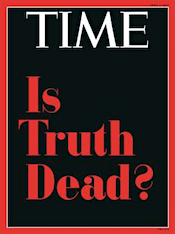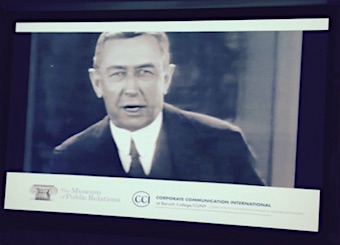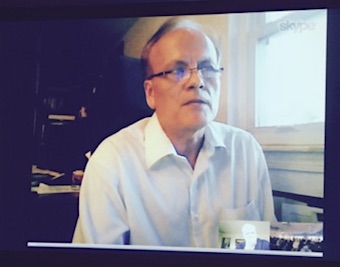PR founder Ivy Lee came out of journalism and believed PR should “shine the light” while founder Edward Bernays believed in using social psychology to influence public opinion for private purposes.
|
|
That is how Fraser Seitel, author of The Practice of Public Relations, who was moderator of the Lee/Bernays program March 29, summarized the careers and impact of the two.
Lee got the Rockefeller family, which had many philanthropic interests, to give some publicity to them rather than keeping them quiet, said Seitel, who teaches graduate-level PR and communications at New York University.
The picture that emerges of Lee, from previous coverage and in a newly-discovered manuscript of his that will be published later this year, is of someone doubtful of his occupation, fearing it favored his employers.
He told a Congressional committee in 1934 that he could not “describe” what did. The same remark was made to an IRT subway hearing in 1927.
But a basic aim of Lee was to “shine the light, tell the truth, and put facts in the public record,” said Seitel, who addressed a standing-room audience of more than 100 at Baruch College. “Lee wanted people to be informed,” he said.
|
|
The audience, as well as those who could view the proceedings via a live webcast, saw the careers of Lee and Bernays discussed for more than an hour by Ray Hiebert, Ph.D., author of Courtier to the Crowd, a 1966 bio of Lee, and Burton St. John, Ph.d., professor and Ivy Lee historian at Old Dominion University, Norfolk, Va.
Bernays A “Self-Promoter”
Bernays, who died in 1995 at the age of 104, had an “obsessive desire for recognition,” wrote John Stauber and Sheldon Rampton in a review of The Father of Spin, the 1998 book by Larry Tye.
Bernays wrote in his book, Propaganda: “If we understand the mechanisms and motives of the group mind, it is now possible to control and regiment the masses according to our will without them knowing it.” He coined the term, “Engineering of Consent.”
Another quote is, “The conscious and intelligent manipulation of the organized habits and opinions of the masses is an important element in a democratic society.”
|
|
Hiebert discussed the newly discovered manuscript of Lee saying it has many revelations about his state of mind and his view of PR. The manuscript will be available later this year.
Spotlight on PR, Communications
The SRO function at the Museum of PR was an indication of heightened focus on PR and communications of all types.
The decline of credibility in journalism was discussed for an hour on the same day at a panel sponsored by Cision that included counselor Richard Levick; Katrina Craigwell of GE Digital; Chris Lynch, Cision chief marketing officer; Brian Braiker of Digiday and John Avlon, The Daily Beast.
 |
Panelists said journalists must double-down on their quest for facts and should do their own original reporting and not accept reports by others. A Cision survey of 1,550 journalists found they are “struggling to maintain the public’s trust."
Lynch opened the session by noting the April 3 Time magazine cover that had the headline, “Is Truth Dead?” echoing its 1966 cover that posed the question, “Is God Dead?”
Global PR Summit in NYC
The Global PR Summit, a program featuring “forward-looking people” that has been conducted in 20 countries, will be staged in New York June 8-9.
Patrick Jephson, former chief of staff to Princess Diana, and Mary Jo Jacobi, former US presidential advisor and former VP of communications at BP America during the oil spill in the Gulf of Mexico, will kick-off the Global PR Summit June 8-9 with a presentation on reputation management.
There will be presentations on data leaks by international PR guru Piers Schreiber from the UK, PR measurement by Thierry Nicolet from Schneider Electric in France, crisis communications by Liz Young from Sony Music, as well as presentations on influencer marketing and social media by Katie Morse from Nielsen, Lars Silberbauer from Lego and Sean Gardner, Forbes Magazine’s Social Media Influencer.
An interactive workshop on crisis communications will be headed by internationally renowned crisis expert Donald Steel from the UK.
Policies of Walmart to be Debated
Economic pluses and minuses of Walmart, world’s largest company with $485.8 billion in sales and 2.3 million employees, will be aired April 6 in New York.
Defending Walmart will be Richard Vedder, author of The Wal-Mart Revolution, and John Tierney, former New York Times columnist, while critics are Nelson Lichtenstein, author of The Retail Revolution: How Walmart Created a Brave New World of Business, and Amy Taub, researcher for Demos, liberal-oriented policy organization.
Demos, which had $7.42 million in revenues in 2015 and net assets of $4.05M, is based at 220 Fifth ave., New York. Heather McGhee is president. Taub explores consumer debt, job creation and the U.S. middle class for Demos, founded in 2001.
Hosting the event at the Kaufman Center, 129 W. 67th st., is Intelligence Squared U.S., the American branch of a debating society created in the U.K. in 2002.
It includes a reception from 5:45-6:30 p.m. and the debate from 6:45-8:30. Tickets are $40 from Intelligence Squared.
Students are $12.
The event will be streamed online, and viewers will be able to cast their votes on the proposition, “Long Live Walmart.” Walmart is an Edelman account.

 Ivy Lee film
Ivy Lee film Burton St. John discussed careers of Lee and Bernays
Burton St. John discussed careers of Lee and Bernays Ray Hiebert
Ray Hiebert

 Have a comment? Send it to
Have a comment? Send it to 
No comments have been submitted for this story yet.